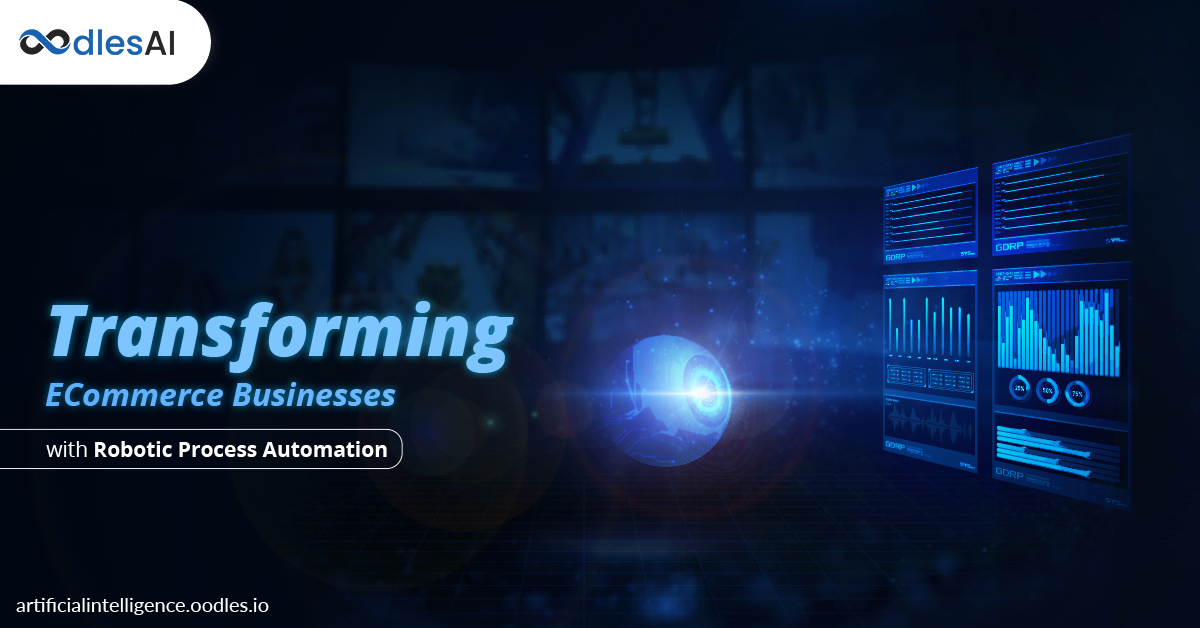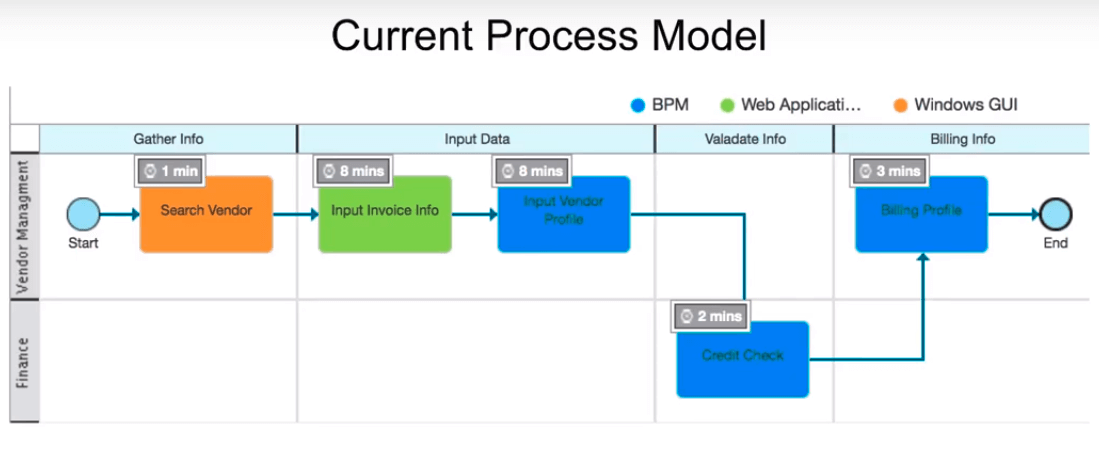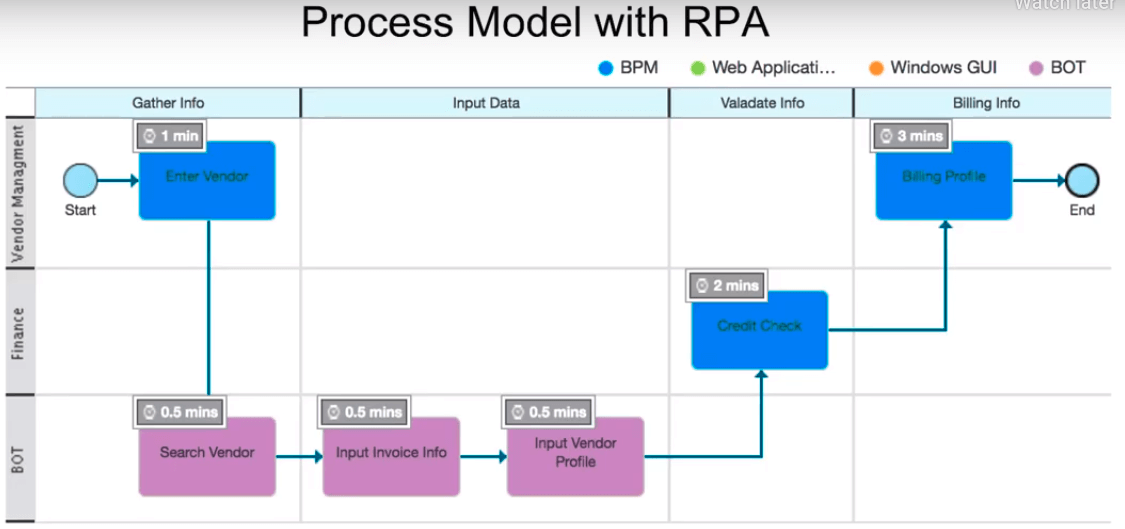Transforming eCommerce Businesses with Robotic Process Automation
Sanam Malhotra | 27th September 2019

Businesses marching towards automation are beginning to realize the benefits of robotics. It is possible with Robotic Process Automation or RPA, the first wave of artificial intelligence services, that is overtaking business processes efficiently. For businesses that have implemented RPA are observing 86% productivity improvement and 59% cost reductions according to Deloitte’s RPA Survey.
The lack of quality experience and fierce competition makes RPA an imperative choice for eCommerce businesses. RPA adoption in eCommerce SMBs can automate and streamline repetitive tasks from vendor onboarding to customer services.
This blog post discusses how RPA implementation accelerates the operations and conversions of eCommerce businesses.
Understanding RPA and its Role in Businesses
Robotic Process Automation or RPA is a technology consisting of various software tools that perform routine business tasks without human intervention. It enables automation of back-office processes by mimicking repetitive human activities in a cheaper and faster manner than an average worker. With RPA implementation for rule-based activities, businesses can deploy human strength in other important tasks that require intelligence, reasoning, and judgment.
Leslie Willcocks, professor of technology, work, and globalization at the London School of Economic’s department of management, precisely defines RPA as,
“RPA takes the robot out of the human.”
A typical RPA software performs monotonous back-office jobs such as-
a) Opening emails and attachments files
b) Moving files and folders
c) Extracting data from files and moving them to databases
d) Making calculations etc.
How can businesses and employees benefit from RPA?
a) Accelerated RO
A strong wave of artificial intelligence development is still a far-sighted vision for industrial leaders. However, robotic process automation is a mature technology that yields a potential ROI of 30-200% in the first year, states Mckinsey.
b) Scalable technology
RPA is capable of completing pre-defined business tasks more accurately, quickly, and unceasingly than humans. The simplest form of RPA is known as web or screen scraping. It can be trained further to acquire multiple skills to handle customizable processes such as accounting and finance.
c) Employee benefits
Industrial giants such as eCommerce, banking, and insurance businesses are using RPA to ensure compliance with more efficiency. With an expected spiral growth in digital data generation and audit, RPA is needed to prevent employees from taking unnecessary pressure.
Functional Benefits of RPA for eCommerce Businesses
1) Onboarding Vendors
The first step for any eCommerce business is to locate vendor information and input the same into invoice applications. Traditionally, manual efforts were required to extract and copy vendor information from emails or websites.
Below is a holistic view of how the current supplier onboarding process works-

Here’s how RPA automates the initial three steps of vendor onboarding process-
With robotic process automation, the time spent for vendor onboarding can be reduced by almost 50%.
How does Oodles AI streamline your business processes with RPA?
We, at Oodles, combine our computer vision capabilities with open-source automation tools such as JBPM and Optaplanner to deploy RPA for-
a) Transparent status of the onboarding process with Optical Character Recognition (OCR)
b) Vendor document collection and validation
c) Consistent data mapping between source and downstream systems
Related- Improving Business Operations | 5 Applications of Facial Recognition Technology
2) Delivering Customer Services
As a portal that receives diverse customer queries, eCommerce businesses require a strong customer redressal system in place.
A typical customer service agent receives 25 calls or email requests per day with an average 20 minutes spent on each query. Here’s a broad visualization of the current state of customer service sector at any eCommerce business-

eCommerce businesses can make their customer services more time and cost-effective by implementing RPA-powered system logins, customer verification, email responses, etc. Here’s how-

Also, eCommerce businesses can deploy RPA to shoot automated notifications and messages to customers regarding new services or product offerings.
The combination of AI app development and RPA is proven first-level support for customer service requests. RPA-powered chatbots gain customer trust with 24×7 availability, along with consistent and standardized response across channels.
How does Oodles AI automate customer services with RPA?
The Chatbot development team at Oodles studies your business capabilities to integrate industry-specific chatbots into the business model effectively. Here’s how we combine RPA for eCommerce customer services-
a) We program RPA-powered chatbots to handle standard and generic customer queries, thereby enabling agents to focus on more complex requests.
b) Our NLP engines and conversational designs result in multi-tasking RPA implementation that supports simultaneous data entry on multiple windows.
Talk to our AI development team today to know more about our AI and chatbot development services.




